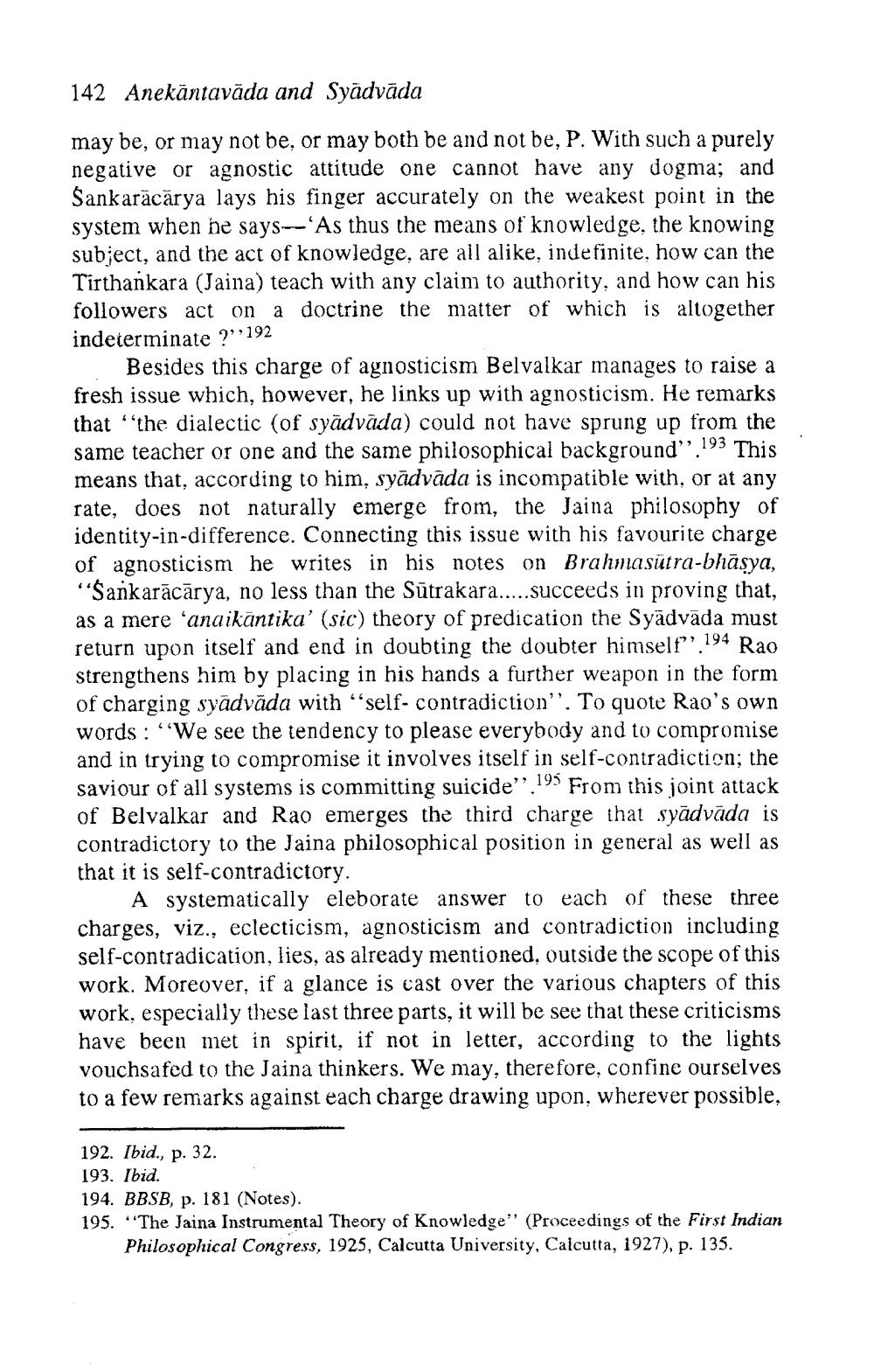________________
142 Anekāntavāda and Syadvāda
may be, or may not be, or may both be and not be, P. With such a purely negative or agnostic attitude one cannot have any dogma; and Sankarācārya lays his finger accurately on the weakest point in the system when he says--'As thus the means of knowledge, the knowing subject, and the act of knowledge, are all alike, indefinite. how can the Tirthankara (Jaina) teach with any claim to authority, and how can his followers act on a doctrine the matter of which is altogether indeterminate ?''192
Besides this charge of agnosticism Belvalkar manages to raise a fresh issue which, however, he links up with agnosticism. He remarks that 'the dialectic (of syadvada) could not have sprung up from the same teacher or one and the same philosophical background".193 This means that, according to him, syödvāda is incompatible with, or at any rate, does not naturally emerge from, the Jaina philosophy of identity-in-difference. Connecting this issue with his favourite charge of agnosticism he writes in his notes on Brahmasútra-bhāsya, "Sankarācārya, no less than the Sūtrakara.....succeeds in proving that, as a mere 'anaikāntika' (sic) theory of predication the Syādvada must return upon itself and end in doubting the doubter himself". 194 Rao strengthens him by placing in his hands a further weapon in the form of charging syädvāda with “self-contradiction''. To quote Rao's own words: “We see the tendency to please everybody and to compromise and in trying to compromise it involves itself in self-contradiction; the saviour of all systems is committing suicide".19 From this joint attack of Belvalkar and Rao emerges the third charge that syadvāda is contradictory to the Jaina philosophical position in general as well as that it is self-contradictory.
A systematically eleborate answer to each of these three charges, viz., eclecticism, agnosticism and contradiction including self-contradication, lies, as already mentioned, outside the scope of this work. Moreover, if a glance is cast over the various chapters of this work, especially these last three parts, it will be see that these criticisms have been met in spirit, if not in letter, according to the lights vouchsafed to the Jaina thinkers. We may, therefore, confine ourselves to a few remarks against each charge drawing upon, wherever possible,
192. Ibid., p. 32. 193. Ibid. 194. BBSB, p. 181 (Notes). 195. *The Jaina Instrumental Theory of Knowledge" (Proceedings of the First Indian
Philosophical Congress, 1925, Calcutta University, Calcutta, 1927), p. 135.




